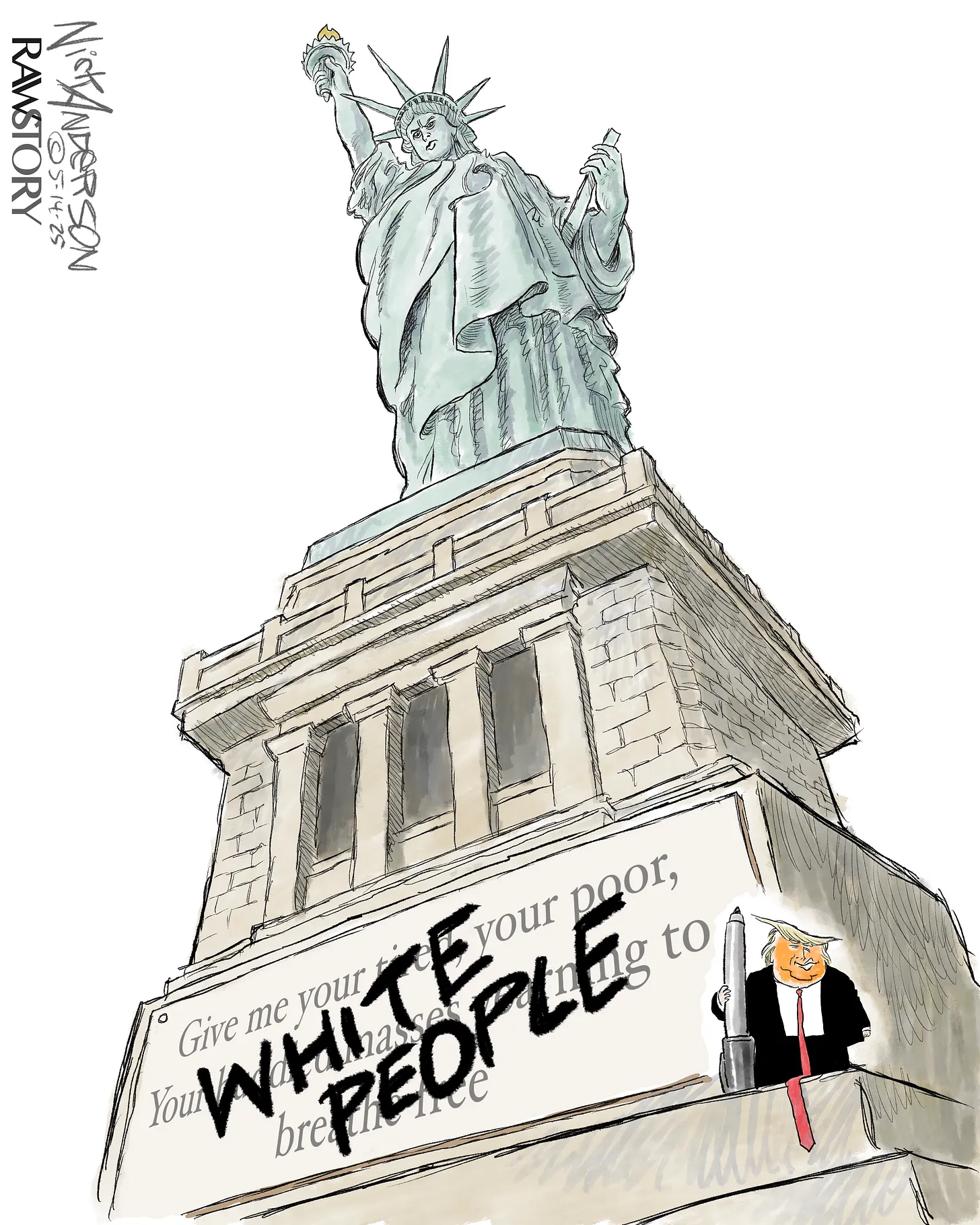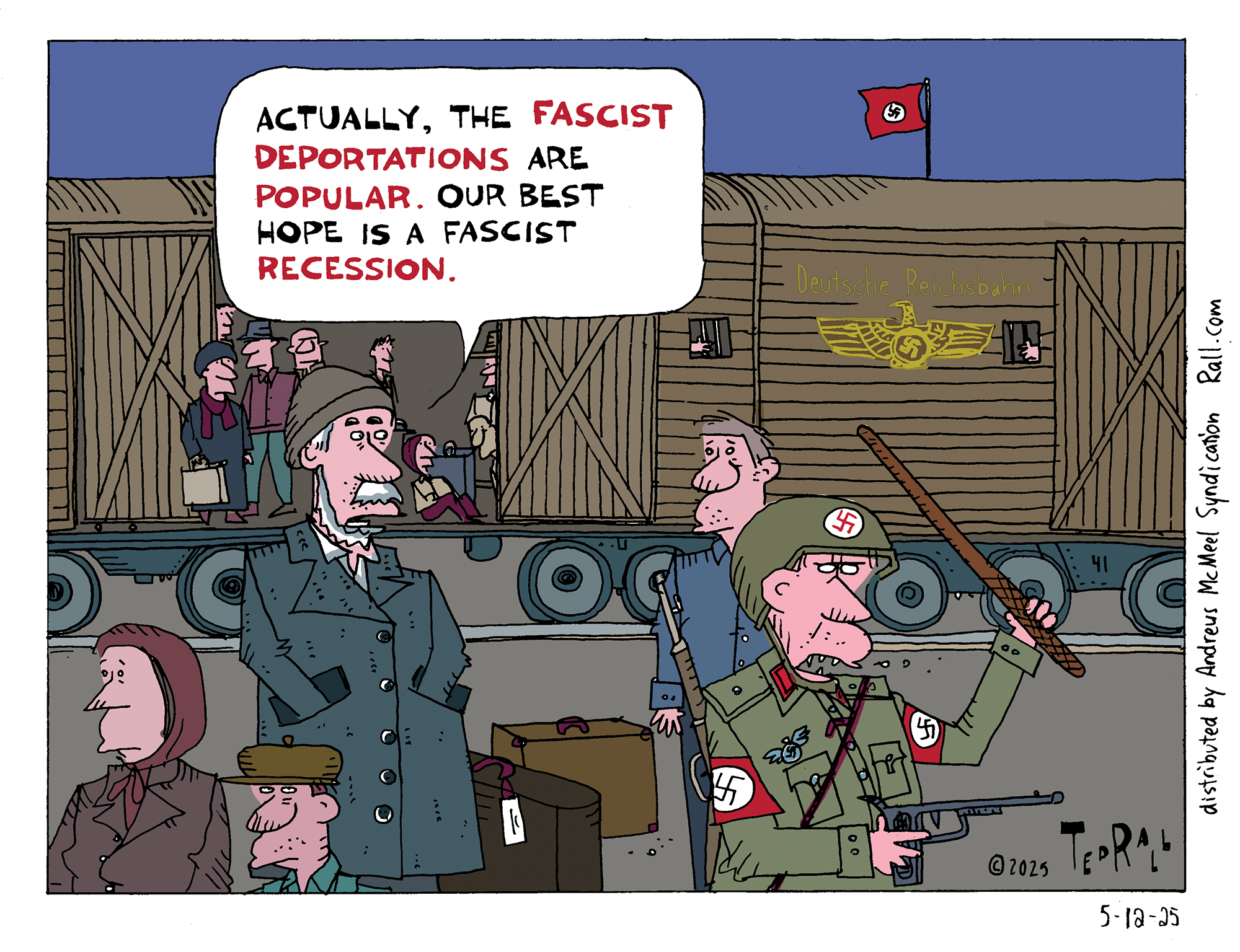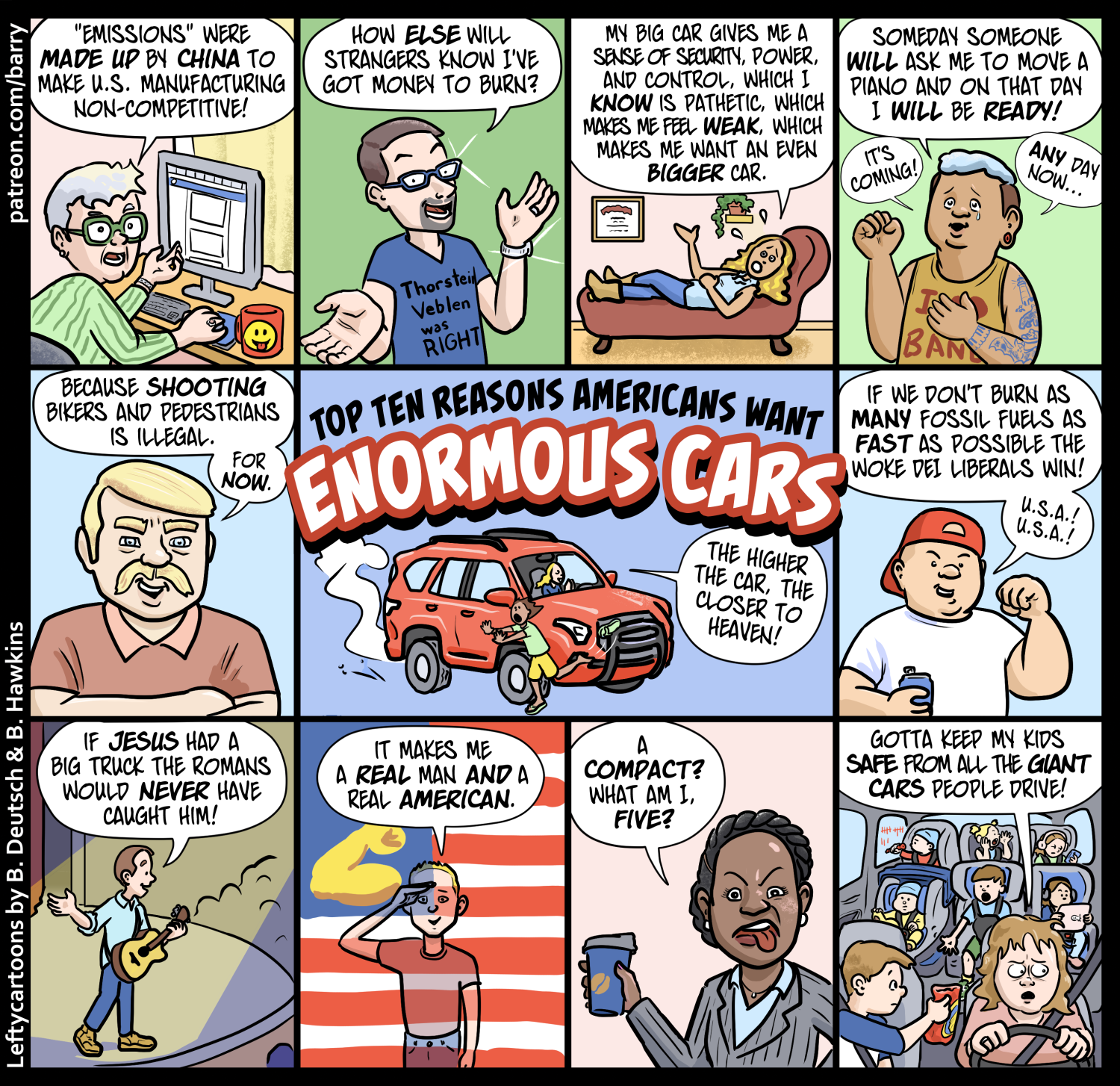Is it really color or is it class?
— mike luckovich (@mluckovichajc) May 14, 2025
And if MAGA ever comes to the realization that they're also casualties of the class war ... could that eventually break their fever?
A Fox News poll from late April 2025 showed Americans approve of Trump’s border security policies, 55% to 40%. To shift public opinion against him, a significant economic downturn might be necessary. Polls indicate economic concerns could erode his base: a Reuters/Ipsos poll (April 30, 2025) reported only 36% approve of Trump’s economic stewardship, with 56% disapproving, as fears of recession grow (82% of voters worried, per Decision Desk HQ/NewsNation). This highlights a troubling reality where economic stability overshadows other issues. If jobs vanish or inflation spikes -- 91% of voters are concerned about rising prices -- support for deportations may (finally begin to) wane, revealing our misplaced priorities.
🚨 🚨
— David Pepper (@DavidPepper) May 13, 2025
“Grift Force One”
- by @knecessary pic.twitter.com/rTi6iQPjYn
So while we wait for them to wake up and catch up, it seems they're still engaged in culture war, taking exception to a woke pope. King Donald meanwhile lashes out at the Boss. Michael de Adder surely did not realize his cartoon would blend so well with developing news when he drew it.
Request
— Michael de Adder (@deAdder) May 12, 2025
by @deAdder
Substack:
@deAdder https://t.co/dkNcgutWTi pic.twitter.com/L31YRv9h3T
This cartoon (below) doesn’t get into the policy reasons that cars in the U.S. have gotten so big. But our individual preferences have been shaped by the way federal policy shapes our car norms.
Legally, car companies can avoid stricter emission standards -- and make higher profits -- by selling bigger SUVs and trucks. As a result of this loophole, auto makers have spent decades on a nonstop campaign to convince us that huge cars are a necessity.
There are also tax reasons. Tariffs -- which have been in the news a lot lately -- are the reason we don’t have more smaller cars to buy.
In the early 1960s, Europe raised the ire of American officials by slapping a 50 percent tariff on chicken exported from the United States. In retaliation, the US enacted a 25 percent tax on pickup trucks imported from abroad. The dispute is long forgotten, but the “Chicken Tax” lives on.
Although the tariff was initially aimed at Germany’s immense auto industry (Volkswagen in particular), it also applies to pickups imported from newer automaking powers such as Japan and South Korea, where carmakers are often adept at building vehicles much smaller than those available to Americans.
The Chicken Tax (a name sure to confuse) makes it impossible to make a profit selling small foreign cars in America. So they don’t.
.
















